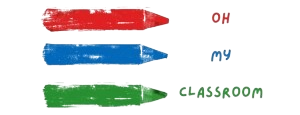
Social and emotional learning (SEL) at the kindergarten level involves the early development of skills that enable young children to understand and manage their emotions, build relationships, and navigate social situations. These foundational abilities are essential for personal growth and include:
- Self-Awareness: Recognizing and labeling emotions, such as identifying when they feel happy, sad, or angry. For example, a child might say, “I’m mad because my tower fell,” learning to connect feelings to experiences.
- Self-Regulation: Developing strategies to manage emotions and behaviors, like taking deep breaths to calm down when frustrated or waiting for their turn during a game. This helps children control impulses and respond appropriately to situations.
- Social Awareness: Understanding the feelings and perspectives of others, such as noticing when a classmate is upset and offering comfort. This includes learning empathy and recognizing social cues, like smiling to show friendliness.
- Relationship Skills: Building positive interactions with peers and adults, such as sharing toys, taking turns, or saying “please” and “thank you.” For instance, children might work together to build a block tower, practicing cooperation and communication.
- Responsible Decision-Making: Making simple choices based on consequences, such as deciding to clean up after playing to avoid losing privileges. This introduces problem-solving and understanding cause-and-effect relationships.
The importance of social and emotional learning at this stage is profound:
- Emotional Well-Being: SEL helps children develop a healthy sense of self, reducing anxiety and fostering resilience in challenging situations.
- Positive Relationships: These skills promote teamwork, friendship, and conflict resolution, creating a supportive classroom environment.
- Academic Success: Emotional regulation and social competence enhance focus and participation, leading to better learning outcomes.
- Behavioral Development: SEL reduces disruptive behaviors by teaching children how to express emotions constructively and make thoughtful decisions.
- Lifelong Impact: Early SEL skills lay the foundation for future success in personal, academic, and professional settings, promoting empathy, leadership, and adaptability.
